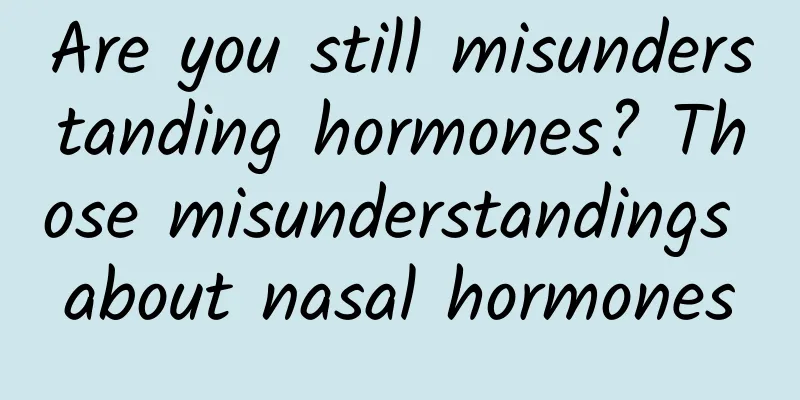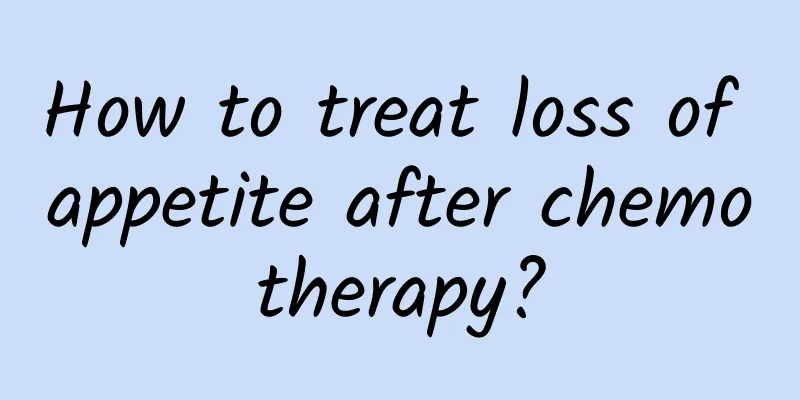Are you still misunderstanding hormones? Those misunderstandings about nasal hormones

|
Recently, a news story about Ms. Sha who suffered from lupus erythematosus but refused to use hormone treatment and eventually went to Switzerland for euthanasia became the focus of social debate. Those who admired her said that she lived a deep life and respected her right to choose; while those who criticized her lamented that she was ignorant, willful and irresponsible. Of course, these two kinds of comments are like two parallel lines that will never intersect, and we will not make any specific comments. But as an otolaryngologist, I think that most of the patients with allergic rhinitis I encounter in clinical practice do have some misunderstandings about nasal hormones. Today I will explain these cognitive misunderstandings one by one. Misconception 1 : Nasal hormones = side effects? The word "hormone" seems to be equated with "side effects" in the minds of many ordinary people, but this is not the case. There is a saying that "talking about toxicity without considering the dosage is just hooliganism". In our general impression, the use of hormones is equivalent to terrible phenomena such as obesity, osteoporosis, and increased blood sugar. But this has a prerequisite, that is, the drug must be absorbed by the whole body and used for a long time. In reality, only patients who need long-term oral or intravenous use of glucocorticoids may experience these side effects. The nasal hormones used to treat rhinitis have a small single dose and local effect in the nasal cavity, so the systemic absorption is very small, and their side effects are far less than oral or injected hormones. Usually we use the indicator of systemic bioavailability to predict the relative side effects of nasal hormones. The bioavailability of some excellent glucocorticoid nasal sprays is less than 0.5%. In other words, almost all drugs only act on the nasal cavity, and less than 0.5% of the hormones will enter other organs throughout the body, which can be said to be negligible. Clinical studies have shown that using mometasone furoate or fluticasone propionate nasal spray to treat children with allergic rhinitis for one year has no significant overall effect on the children's growth and development. At present, some places still have some hormone nasal drops for the treatment of rhinitis, or some old treatment plans use intranasal injection of hormones to treat rhinitis. All these methods of using large doses of hormones to treat rhinitis have not completely disappeared. We do not agree with this way of using hormones without considering side effects, which is like "using a cannon to kill a mosquito". We still recommend that if safety is considered, for the standardized treatment of allergic rhinitis, nasal hormones with low bioavailability and nasal spray dosage form should be selected. As for the systemic side effects such as obesity and osteoporosis that the public is worried about, they will hardly occur under reasonable use. Myth 2: Will using too much hormones lead to addiction ? Should we use as little as possible? Another common misunderstanding is that the use of nasal hormones can lead to "addiction" and symptoms will rebound once the medication is stopped. In fact, nasal hormones are not addictive. The so-called rebound phenomenon is often caused by the fact that the disease itself is not completely controlled, rather than the use of hormones. Although nasal hormones are the first choice for the treatment of allergic rhinitis and have significant clinical effects, the effect of nasal hormones is not immediate. Fat-soluble glucocorticoids are transferred to the cell nucleus through receptors on the nasal mucosa, which can directly or indirectly regulate gene transcription and translation, and ultimately affect the levels of specific inflammatory mediators such as cytokines. This process takes time and is not as immediate as some anti-allergic drugs. Usually, the drug takes 7 to 8 hours to work after use, and the duration of action can be up to two weeks. There are two main types of improper use of nasal hormones in clinical practice. One is that it does not take effect immediately after use, so it is considered useless; the second is that after a few days of use, the symptoms improve slightly and the drug is stopped immediately. Both of these usages are wrong. The currently recommended usage is 1-2 times a day. Mild to moderate allergic rhinitis should be used for at least 2 weeks, while moderate to severe allergic rhinitis should be used for more than one month. So, it is not that hormones will become addictive after use. Some people do not see good results because they do not use enough or do not use them continuously according to the treatment course. Misconception 3: Hormones only treat the symptoms and not the root cause? To answer this question, we must first consider what is the symptom and what is the root cause? The standard of perfect treatment in the minds of ordinary people may be to treat both the symptoms and the root cause, but modern medicine is still not perfect, and most diseases cannot be truly "cured". As far as allergic rhinitis is concerned, it is difficult to cure an individual's allergic constitution, and all that can be done is long-term control. Currently, glucocorticoids are the most potent of all anti-inflammatory drugs, and nasal hormones with low bioavailability are a compromise after taking into account both the therapeutic effect and side effects, or a perfect balance. From another perspective, if an allergic rhinitis patient has controlled his rhinitis through regular treatment, and does not have a long-term attack, and his life is no longer affected by rhinitis, do you think this is a symptomatic treatment or a root cause treatment? Although Ms. Sha's case, which has become a hot topic this time, has no direct connection with nasal hormones, the incident itself reflects the public's widespread misunderstanding and fear of hormones. Hormones themselves are not perfect, and we hope that we can face hormones and diseases with a scientific attitude. |
<<: This kind of pear is strongly recommended to be eaten by "sucking".
>>: [Medical Q&A] Is the saying “A slim body in old age cannot be bought with money” true?
Recommend
What can women eat to speed up their metabolism?
You certainly don't know what women can eat t...
How to calculate the measurements
The three measurements are mainly a common way fo...
Do you know Helicobacter pylori?
In my country, the infection rate of Helicobacter...
Can I drink alcohol during early pregnancy?
There are many types of wine, such as white wine,...
How many days after the abortion can I wash my vagina?
Although abortion is not as troublesome as confin...
Nourishing soup for women
For women, daily physical care is very important....
How to prevent chlorine water when swimming every day? How to protect yourself from the sun when swimming outdoors in summer
Recently, many friends have used the summer vacat...
It's not a period with a little bleeding
It is not a small amount of bleeding during menst...
Why can't you take vitamin E during breastfeeding?
Women who have entered the breastfeeding period m...
How much do you know about protecting your baby teeth?
Author: Zhang Lijie School: Xuzhou Medical Univer...
What is the appropriate standard for New Year's Eve dinner? How much does a table of New Year's Eve dinner cost?
We all know that the New Year's Eve dinner is...
Do you wash your vulva with pepper water every day?
You can use pepper water to wash the vulva, which...
Standard size of gestational sac after 28 days of transplantation
In some infertility cases, conventional treatment...
What is the reason for stomach pain in the 60th day of pregnancy?
For pregnant women, they should be particularly c...
Can formaldehyde cause miscarriage?
If pregnant women want their babies to be born he...









